Four common types of CNC machined metals
RuiYi CNC machining service can process a variety of metal materials, including but not limited to the following materials:
1. Steel
Steel is the most widely used material in metal cutting. From alloy steel to cast steel to high alloy materials, all of them can not be separated from the participation of steel materials. Steel has good workability and stability and is not easily deformed and corroded. Depending on the carbon content, the hardness of steel varies. cnc machining is applicable to a wide range of steels, the following are some common CNC machining steels and their characteristics:
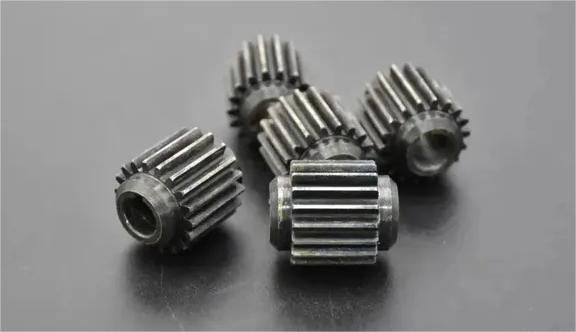
Carbon Steel: Carbon steel is one of the most common CNC machining steels. It has good machinability and is easy to cut and shape. Carbon steel also has good strength and wear resistance and is suitable for manufacturing various mechanical parts and tools.
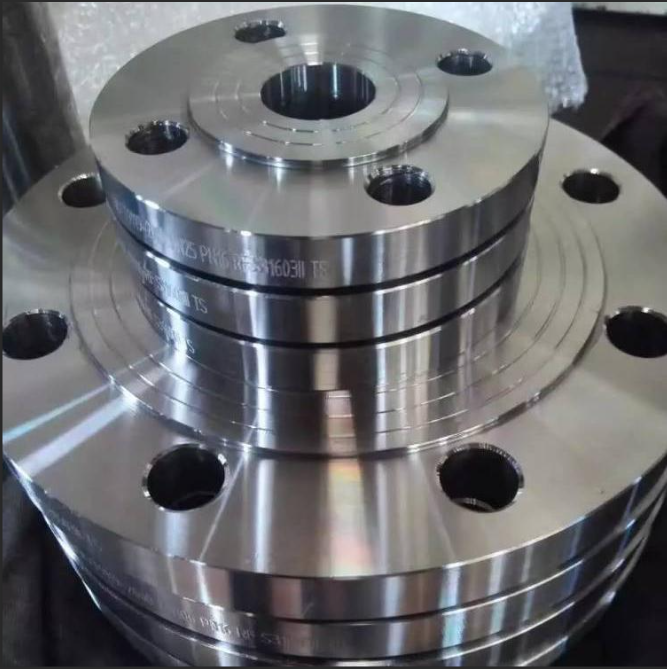
Stainless Steel: Stainless steel is an alloy containing at least 12 per cent chromium. It is a corrosion-resistant steel and is commonly used to make parts that need to withstand wet or corrosive environments. Stainless steel is strong and hard. Other alloys may include nickel and molybdenum. Although stainless steel generates a lot of heat during machining and is prone to groove wear and edge build-up, it is still used in a wide variety of applications due to its excellent corrosion resistance and aesthetics.
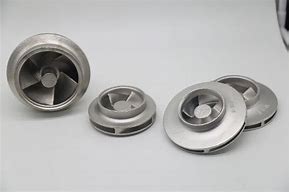
Alloy Steel: Alloy steel is a type of steel with added alloying elements that provide higher strength and hardness. It is suitable for manufacturing parts that need to withstand high loads and wear, such as automotive parts and mechanical equipment.
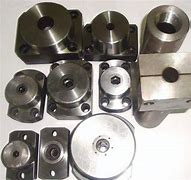
Tool steel: Tool steel is a high-carbon, high-chromium steel suitable for making cutting tools and moulds. It has excellent wear and heat resistance and is able to maintain stability at high temperatures and pressures.

In addition to these common steels, there are other special steels, such as high-speed steel, bearing steel, spring steel, etc., which can also be used for CNC machining. Choosing the right steel depends on the customer's specific machining needs, application scenarios and part requirements.
2. Aluminium Alloy
Aluminium alloy: Aluminium alloy has low density and good machinability. It is a commonly used material in aerospace, automotive manufacturing, etc. Ruiyi CNC machining service can process a variety of aluminium alloys, including cast aluminium, wrought aluminium, etc. The following are commonly used aluminium alloys. The commonly used aluminium alloys are as follows:
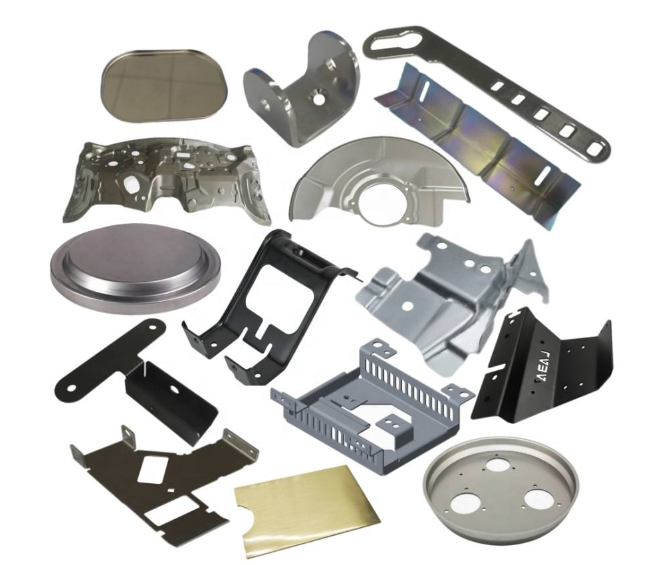
2017 Aluminium Alloy: this material is mainly used in aerospace because it has high strength and good corrosion resistance.
2024 Aluminium Alloy: it is also commonly used in aerospace, especially for parts such as aircraft structures and truck wheels. It has high strength and good machinability.
5052 Aluminium Alloy: This aluminium alloy has good forming and machining properties, corrosion resistance and weldability, so it is widely used in the manufacture of sheet metal parts for a variety of fields such as aircraft fuel tanks, vehicles, ships, instrumentation, brackets and medical equipment.
5083 Aluminium Alloy: It also has good corrosion resistance and is commonly used for parts that need to withstand the marine environment.
6061 Aluminium Alloy: This is one of the most commonly used aluminium alloys as it has medium strength, good corrosion resistance, weldability and machinability. It is widely used in automotive, construction, marine, furniture, machine parts, robotics, aerospace, and more.
6063 Aluminium Alloy: This material is mainly used in the construction and decorative fields as it has good forming properties and surface finish.
7075 Aluminium Alloy: This is one of the strongest aluminium alloys, easy to machine, with good wear resistance, corrosion resistance and good oxidation resistance, making it ideal for high-strength recreational equipment, automotive and aerospace frames.
When choosing an aluminium alloy for CNC machining, you need to consider the functional requirements of the part, the application scenario and the mechanical properties required. In addition, the surface finishing capabilities of aluminium alloys make them particularly popular for applications where aesthetics and corrosion resistance are required. For more information, please see what types of aluminium alloy surface treatments are available.
3. Brass and Copper Alloys
The main copper alloys commonly used in CNC machining include brass, bronze and white copper.
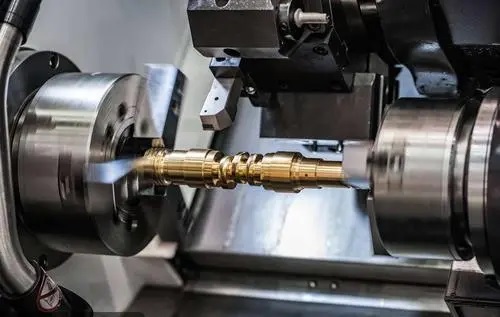
Brass: brass is an alloy of copper and zinc, with good machinability, electrical conductivity and corrosion resistance. brass commonly used in CNC machining are H62, H65, H68, etc. Bronze: bronze is a copper-tin-zinc alloy, which is particularly popular in the application of aluminium alloy surface treatment.
Bronze: bronze is a copper-tin alloy, mechanical properties, wear resistance, corrosion resistance, casting good, and beautiful colour, especially processed into a variety of profiles, plates, and then surface treatment, you can get a variety of beautiful decorative colour and technology products.CNC machining of commonly used bronze QSn4-3, QSn6.5-0.1 and so on.
White copper: White copper is a copper-based alloy with nickel as the main added element, silver-white in colour with metallic luster, so it is called white copper. Copper and nickel can be infinitely solid solution with each other, thus forming a continuous solid solution, that is, regardless of the content of each other, and constant for the α a phase group.CNC machining commonly used white copper B10, B19, B25, B30, etc. These copper alloys in CNC machining.
These copper alloys have good cutting performance and machining accuracy in CNC machining, and are suitable for the manufacture of various mechanical parts, fasteners, electrical connectors and so on. When choosing copper alloys for CNC machining, you need to choose the right copper alloy material according to the specific application scenarios and mechanical performance requirements.
4. Titanium alloy materials
Titanium alloys for CNC machining mainly include the following:
TC4 titanium alloy: TC4 titanium alloy is a commonly used titanium alloy material with good comprehensive mechanical properties, including high strength, high toughness, good corrosion resistance and biocompatibility. Therefore, TC4 titanium alloy is widely used in aviation, aerospace, medical, chemical and other fields, especially in occasions that need to withstand high loads, high temperatures and strong corrosive environments.

TA1 and TA2 titanium alloys: TA1 and TA2 titanium alloys belong to pure and nearly pure titanium materials with good plasticity, weldability and corrosion resistance. They are usually used in the manufacture of parts and components that do not require high strength but good corrosion resistance, such as chemical equipment, medical equipment and so on.
In addition to the above several commonly used titanium alloy materials, there are some other titanium alloy materials can also be used for CNC machining, the specific choice should be based on the specific processing needs and use of the environment to determine.
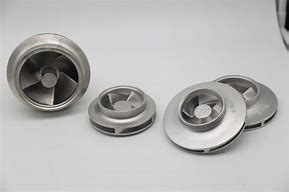
In addition, there are also magnesium alloys, nickel alloys, inconel iron alloys and other metal materials can also be used for CNC machining. When choosing metal materials, you need to consider the mechanical properties of the material, cutting performance, corrosion resistance, electrical conductivity, thermal conductivity and other factors, as well as the use of the environment and functional requirements of the parts. The materials we offer include but are not limited to the above materials, please contact us for other requirements.



